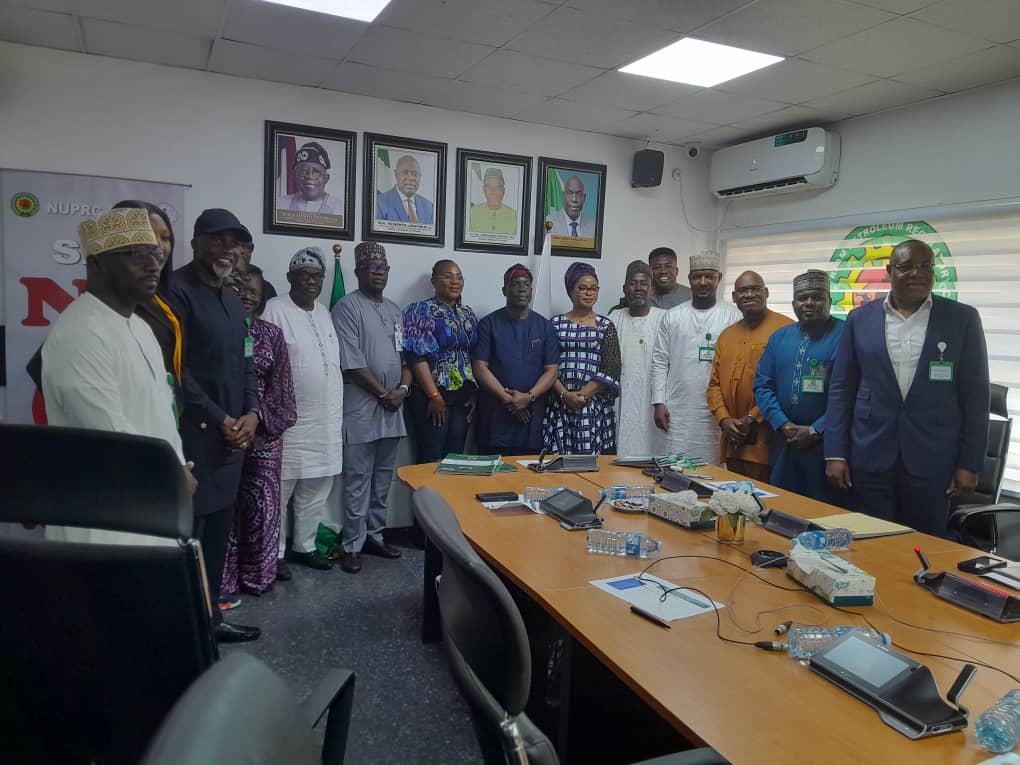By Levinus Nwabughiogu
No doubt, President Bola Ahmed Tinubu has demonstrated a resolute commitment to aligning Nigeria’s trajectories with the exigencies of the present era. His vision to redefine the nation’s narrative and forge a progressive future is unyielding. This determination is exemplified by his decisive action to eliminate fuel subsidies from the country’s economic structure. Although the removal has had a considerable impact on the populace, the ultimate objective of charting a robust and sustainable pathway is however deemed more prudent than succumbing to transient economic challenges. But nevertheless, the government has since articulated measures to mitigate the effects.
Background
In tandem with this bold decision is yet another pivotal initiative poised to address a critical aspect of national concern: security. Nigeria has endured protracted periods of insecurity and terrorism, which have seemingly defied conventional solutions. But in a bold stride towards tackling the situation, President Tinubu in February, 2024 inaugurated a committee for the establishment of State Police. He reaffirmed this decision on Tuesday, September 2, 2025, during a courtesy visit by a delegation of prominent Katsina indigenes, led by Governor Dikko Radda. On this occasion, President Tinubu underscored the Federal Government’s commitment to confronting insecurity with utmost resolve.
He said: “The security challenges that we are facing are surmountable. Yes, we have porous borders. We inherited weaknesses that could have been addressed earlier. It is a challenge that we must fix, and we are facing it.
“I have directed all the security agencies to energise further and look at the strategies. We have approved additional acquisition of drones.
“I am reviewing all the aspects of security; I have to create state police. We are looking at that holistically. We will defeat insecurity. We must protect our children, our people, our livelihood, our places of worship, and our recreational spaces. They can’t intimidate us.”
But amidst the security challenges the country has had to face, it beats an imagination that a federation of 36 States and the Federal Capital Territory, with 774 LGAs, over 250 ethnic nationalities, more than 200 million citizens and a vast terrain spanning over 920,000 square kilometres, still sadly operates a single centralised police system that employs less than 400,000 police officers and men. Of course, there is no gainsaying that the nation’s security architecture is under immense pressure and always overwhelmed.
State Police Establishment Bill As Panacea
In this context, the Bill sponsored by the Deputy Speaker of the House of Representatives, Rt. Hon. Benjamin Okezie Kalu, PhD, CFR, pertaining to State Police emerges as a necessary panacea, potentially offering a viable solution to the nation’s security challenges.
Co-sponspored by 13 of Kalu’s colleagues who included Hon. Julius Ihonvbere; Hon. Onanuga A. Oriyomi; Hon. Joseph Bassey; Hon. Ibe Okwara-Osonwa; Hon. Abdulmumin Jubril; Hon. Thaddeus Attah; Hon. Hassan B. Shinkafi; Hon. Chinwe Clara Nnabuife; Hon. Obed Paul Shehu; Hon. Fatima Talba; Hon. Tolani Shagaya; Hon. Abubakar H. Nalaraba; Hon. Blessing Onuh and Hon. Joshua Audu Gana, the bill ultimately seeks to provide for the alteration of the Constitution of the Federal Republic of Nigeria, 1999 (As Altered). It also seeks to provide for the establishment of State Police and the transfer of Police as an item under the Exclusive Legislative List to the Concurrent Legislative List.
Introduced on Thursday, October 12, 2023 on the floor of the House of Representatives, the Bill titled “A Bill for an Act to Alter the Provision of the Constitution of the Federal Republic of Nigeria to Provide for the Establishment of State Police, and for Related Matters” has since Tueday February 20, 2024, scaled through second reading, just about the same time President Tinubu set up the Presidential Committee on the actualization of State Police.
At the moment, it is at the Committee Stage and has been identified as one of the 87 bills to be voted on in the ongoing Constitutional alterations.
Key Provisions of the Bill
Comprises 18 clauses, the bill essentially seeks to alter Sections 34, 35, 39, 42, 84, 89,129,153, 197, 214, 215 and 216 of the Constitution of the Federal Republic of Nigeria, 1999 (As Amended). The Bill also seeks to alter Chapter VI Part III, Second Schedule, Part II of the Third Schedule and Part III of the Third Schedule of the Constitution.
Some of the key innovations of the proposed alteration, amongst others include: (a) the transfer of “Police” from the “Exclusive Legislative List” to the “Concurrent Legislative List”, a move that effectively empowers States to have State controlled policing.
(b) the introduction of a comprehensive framework to ensure cohesion as well as accountability and uniform standards between the Federal Police and State Police.
(c) the provision of prescribed rigorous safeguards preventing unwarranted interference by the Federal Police in State Police affairs, emphasising collaboration and intervention only under well-defined circumstances.
(d) the establishment of State Police Service Commissions as distinct from the Federal Police Service Commission with clearly defined roles and jurisdictions.
(e) a re-calibration of the National Police Council to include the Chairmen of the State Police Service Commissions, emphasising the collaborative and consultative nature of policing in our federal system.
(f) a recognition of the possible financial challenges which may be faced by States Police, by empowering the Federal Government to provide grants or aids, subject to the approval of the National Assembly, thus ensuring adequate resources for effective policing.
During the debate on the general principles of the bill, Kalu submitted that the primary purpose of government as enshrined in Section 14(2)(b) of the Constitution of the Federal Republic of Nigeria, 1999 (As Altered) is the security and welfare of the citizens.
“We must acknowledge the fact that the fabric of any democracy is woven with the threads of constant adaptation to the evolving needs of its society. At this point in our nationhood, State Policing is not only inevitable, but urgently desired to tackle the mounting challenges of insecurity.
“This Bill emerges as a necessary response to several calls for a decentralised and community-oriented approach to law enforcement. It seeks to navigate the complex landscape of security challenges by empowering our states with the means to address issues unique to their localities. This proposed alteration represents not just a legal adjustment to our grundnorm, but a visionary leap towards a safer, more secure, and harmonious Nigeria.
“The establishment of State Police is a clarion call for a tailored, community-centric policing system; it is an acknowledgment that our states are uniquely positioned to address the security challenges within their borders. The alterations proposed in this Bill are not just alterations to the Constitution of the Federal Republic of Nigeria, they are also the building blocks of a more secure, accountable and resilient Nigeria. I urge you to support that this Bill be read the second time”, Kalu said.
Allaying Fears and Concerns
However, recognizing valid concerns and opposition to the bill, Kalu at another occasion, precisely the national dialogue on State Police organized by the House in April, 2024 allayed the fears of the opponents to the bill, amplifying the need for the establishment on national security.
“While opponents of multi-layered policing in Nigeria raise valid concerns, it is essential to address these fears and offer reassurances regarding the potential benefits and mitigating strategies.
“We recognize that the decisions we make regarding the restructuring of Nigeria’s policing system are not intended to serve the interests of any
individual or political faction. Rather, we aim to enact laws and reforms that benefit the collective welfare of our nation. It is important to remember that political leaders, including governors, come and go, but the institutions and systems we establish endure. By focusing on the greater good and the long-term interests of our society, we can transcend partisan divides and ensure that our laws and policies withstand the test of time.
“I want to assure you that the National Assembly, and particularly the House of Representatives, is fully committed to providing the right frameworks, legislation, and oversight to make state policing work for the betterment of Nigerians. We understand the importance of getting this right.
“We are optimistic that through collaborative efforts and a commitment to evidence-based solutions, we can establish a policing system that is not only effective in combating crime but also earns the trust of Nigerians and cooperation between law enforcement and the communities they serve. Together, we can pave the pathways to a more peaceful and secure Nigeria”, he said.
A Call For Support
With this strong and convincing argument, Kalu and his colleagues have successfully avered that state policing is not only inevitable but urgently desired to tackle the mounting challenges of insecurity besetting the nation. They have shown that the establishment represents a visionary leap towards a tailored, community-centric policing system, an acknowledgment that the States of the Federation are uniquely positioned to address security challenges within their borders.
Of course, the Deputy Speaker, in that compelling appeal to his colleagues during the debate simply emphasized that the proposed alterations are aimed to construct a more secure, accountable, and resilient Nigeria.
It is imperative, then, to understand that the benefits just as President Tinubu has expounded transcend party lines and ideologies to the collective good of the beloved nation.
Therefore, as the Parliament prepares to vote on the Constitution alterations soon, it is very necessary to envisage that the outcome of the bill could have profound implications for security and law enforcement in Nigeria, potentially leading to more effective and localized approaches to addressing security challenges, and heralding a new epoch of enhanced security and welfare for the citizenry.
Now that President Tinubu has promised to make it a reality, it calls for the collective resolve of all the stakeholders across every stratum of the society to give their support to ensure that Nigeria defeats the monster of insecurity and banish it from the land. Here, Kalu’s bill sure comes handy.
*Nwabughiogu is the Chief Press Secretary to the Deputy Speaker, House of Representatives.
The post Insecurity: Deputy Speaker, Kalu’s Bill Offers Viable Solution Through State Policing appeared first on THISDAYLIVE.


